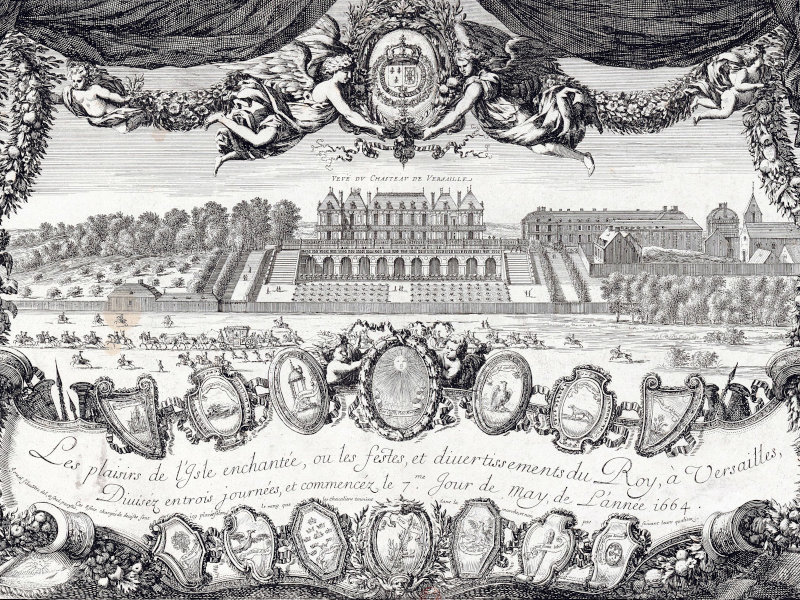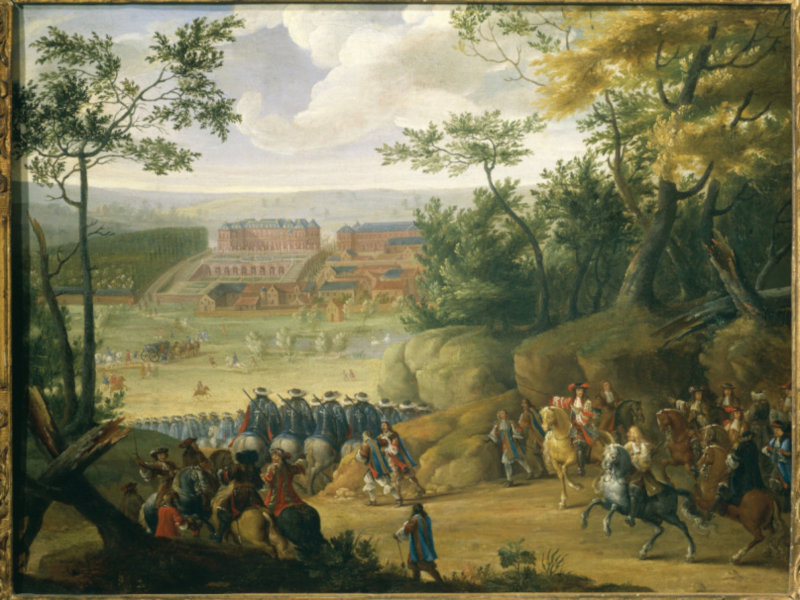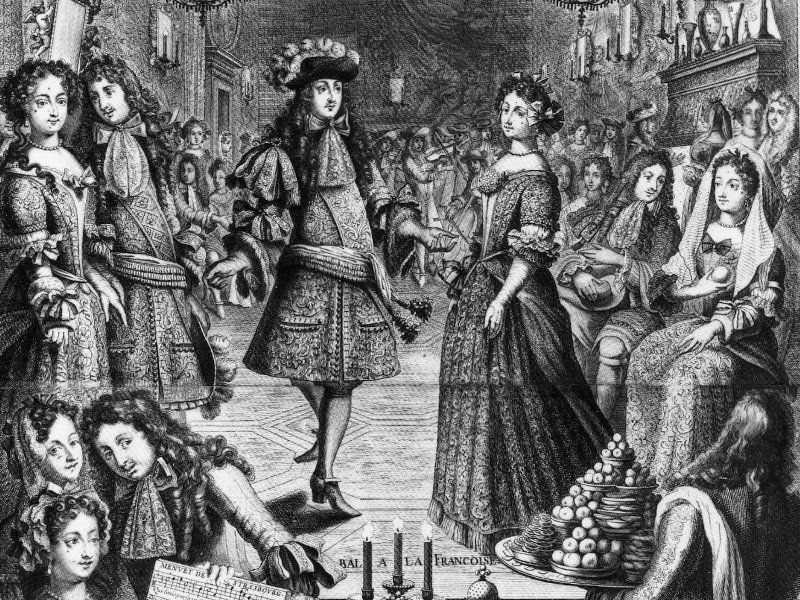GloPrin
A global society of Princes
About
The Interplay between Trans-national, National and Local Politics and Identities in the 17th -18th Centuries Europe
This project aims to analyse the expressions of authority and power of trans-national princes, through their activities at royal courts and governments, in international diplomacy and as local landowners: the challenge is to understand their importance in the broader context of European sovereignty and in the connections between trans-national, national and local politics. What was, in fact, the influence of trans-national princely families on practices of power in dynastic centres?
Project
A primary objective is the construction of comparative research with the potential to offer new insights into the development of identities and cultures within Europe. The study of the specific practices of informal diplomacy within princely families will also allow the research to further develop a gendered approach, identifying the important phenomenon of independent female members of the dynasty and their role in the acquisition and preservation of wealth and power.
The heuristic starting point of the project is the definition of ‘prince’ both as an actual sovereign of a territory and as someone who exercises some form of authority, claiming a share in sovereignty and authority of a ruling dynasty based on birth, not merit or wealth. For the purposes of this project, we will look only at non-royal princes or those who exercise only partial sovereignty.
The starting case study, the princes of Carignan, provide a perfect case study for examining this important yet overlooked social grouping. They are simultaneously princes du sang (princes of royal blood) at the court of Savoy and princes étrangers (members of foreign ruling dynasties) at the French court, between the 17th and 18th centuries. As key examples of a system of pan-European social and political culture in an era pre-dating the rigorous nationalism of the 19th century, dynasties such as Savoy-Carignan can serve as useful models for today’s increasingly desired, though now under threat, post-nationalist sentiment in Europe and beyond.
We will analyse these families in reference to three areas.
As dynasties with their own internal affairs
While the financial and legal activity of early modern elites is widely studied, such approach to early modern princely houses remained extremely rare. Family alliances ensured collective survival and dominance of a princely house, as an intrinsic element of the relationship between State building and dynasticism.
Marital strategies were always interlinked with large-scale legal activity, safeguarding and increasing the family fortune: these strategies also allow us to perceive the crucial role of women in the acquisition and preservation of wealth for their families.
As diplomats and international actors at court(s)
Diplomatic practices constitute a rich field of research for the study of international relations: their construction is an issue that remains crucial in the globalized world. Despite the growing professionalization of ambassadors in early modern times, diplomacy remained a political and social language used more widely, engaging elites in a daily practice based upon ritual representations of power.
Seventeenth century diplomacy was actually not conducted between an abstract international system, but within the society of princes, a social practice which remains representative of the political European culture from the treaties of Westphalia to the Nineteenth century. Social and marital politics, balancing between alliances with trans-national princely clans and regional aristocracies, created a complex system of personal and political relationships: the latter resulted in a dense network of exchanges, which was a key form of informal diplomacy.
Hence, the study of diplomatic practices put in place by a princely family over the long term, in particular by examining their personal correspondence, will allow this project to address a central theme within early modern diplomacy: that is the social and cultural contexts, both local and international, in which diplomacy was practiced.
Did the semi-sovereign or trans-national princes serve a function in informal diplomacy, using kinship links and personal relationships with sovereigns to act where formal ambassadors could not?
As local authorities and more 'mundane' authority
Did semi-sovereign territorial princes really govern, or did they merely ‘grease the wheels’ of governance, allowing their superiors to govern better? Some studies concerning medieval princes provide a fine analysis of creative aristocratic strategies in preserving inherited regional authority.
Indeed, some princely houses, acting as local rulers, put in place a systematic strategy based upon the manipulation of settlements, which often continued for decades.
The three overlapping identities of princes of Carignan will allow us a first approach to the interplay between these three areas.
Events
Past events
- 16/11/2021 - Détestables vices? Ambiguità sessuale e virilità aristocratica nella Francia del Grand Siècle
Alma Mater Studiorum University of Bologna, Department of Cultural Heritage
|
|
09/11/2021 - Relations diplomatiques franco-italiennes dans l’Europe de la première modernité : communication politique et circulation de savoirs [ITA]
Introduced by Elisabetta Lurgo, Ca’ Foscari University of Venice, Department of Linguistics and Comparative Cultural Studies |
2 MB |
|
|
26/10/2021 - Le diplomate en représentation (XVI-XX siècle) [ITA]
Introduced by Elisabetta Lurgo, Ca’ Foscari University of Venice, Department of Linguistics and Comparative Cultural Studies |
2 MB |
|
|
12/10/2021 - Esperienza e diplomazia. Saperi, pratiche culturali e azione diplomatica nell’Età moderna (secc. XV-XVIII) [ITA]
Introduced by Elisabetta Lurgo, Ca’ Foscari University of Venice, Department of Linguistics and Comparative Cultural Studies |
2 MB |
- 28/09/2021 - Les Forces de la modération. Ligne politique ou accommodements raisonnés dans les crises politico-religieuses européennes (XVIe- XIXe siècles)?
Introduced by Elisabetta Lurgo, Ca’ Foscari University of Venice, Department of Linguistics and Comparative Cultural Studies
|
|
24-25/06/2021 - Une solidarité interiorisée. L’éducation du frère de Louis XIV au miroir de la royauté [FRA]
International Colloquium "The King's Brother in Europe (XV-XVII centuries)", University of Caen-Normandie |
2 MB |
|
|
08/06/2021 - L’Empire de Venise et les Turcs [ITA]
Introduced by Elisabetta Lurgo |
2 MB |
|
|
25/05/2021 - Perceptions of the sacred in the suffering body [ITA]
International workshop online, University of Turin, organised by CSR "E. Peterson" |
336 KB |
|
|
24/11/2020 - Principi in una società globale: reti di relazioni ed entità territoriali in età moderna [ITA]
Introduced by Elisabetta Lurgo, Ca' Foscari University of Venice, DSLCC departement |
3 MB |
Bibliography
Books
- "Marie-Louise d’Orléans, nièce de Louis XIV. La Princesse oubliée", Paris, Éditions Perrin, 2021 (ISBN 978-2262082109)
Articles
- "Diplomazia informale e strategie di resilienza. Il matrimonio fra Carlo Emanuele II di Savoia e Mademoiselle de Valois nelle lettere di Margherita di Lorena, duchessa d’Orléans, a Cristina di Francia", Libro de la Corte, 23, 2021
- "Je ne suis pas assez habile homme. Philippe d'Orléans, frère de Louis XIV, et Nicolas Feuillet, chanoine de Saint-Cloud", Revue Dix-Septième Siècle, 2021, n. 3, 107-127
Blog entries
- Marie-Louise d'Orléans, Queen of Spain (1662-1689), Team Queens Blog, 9th September 2021



